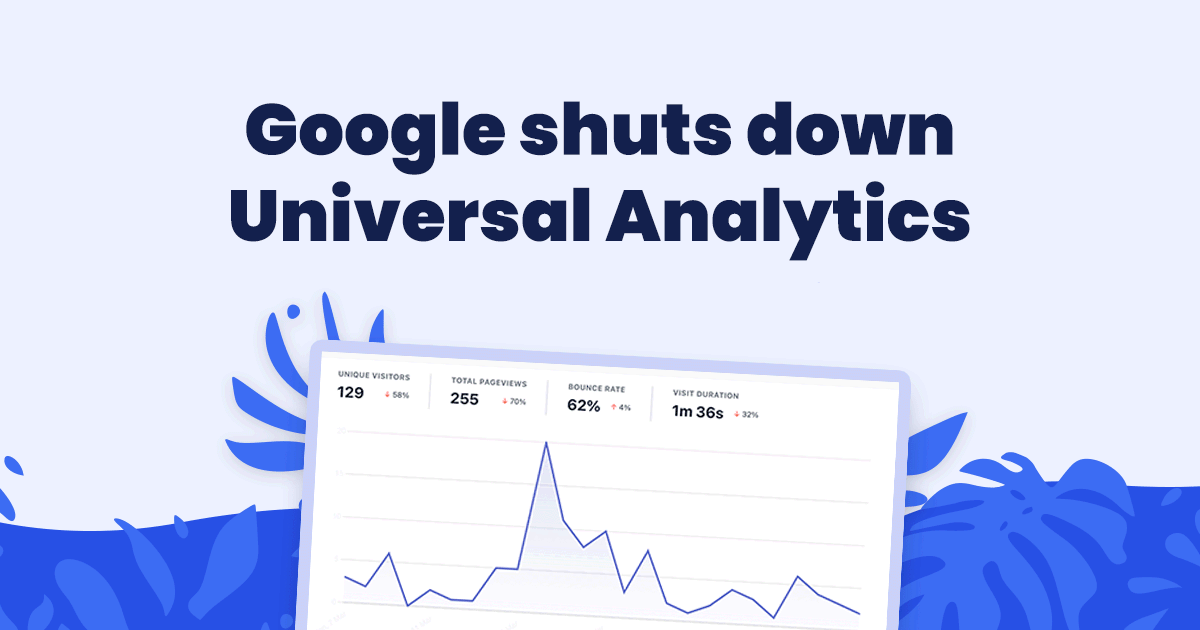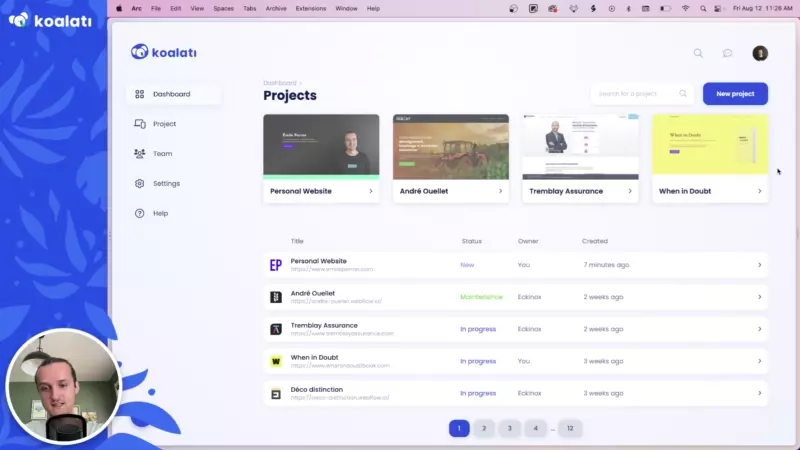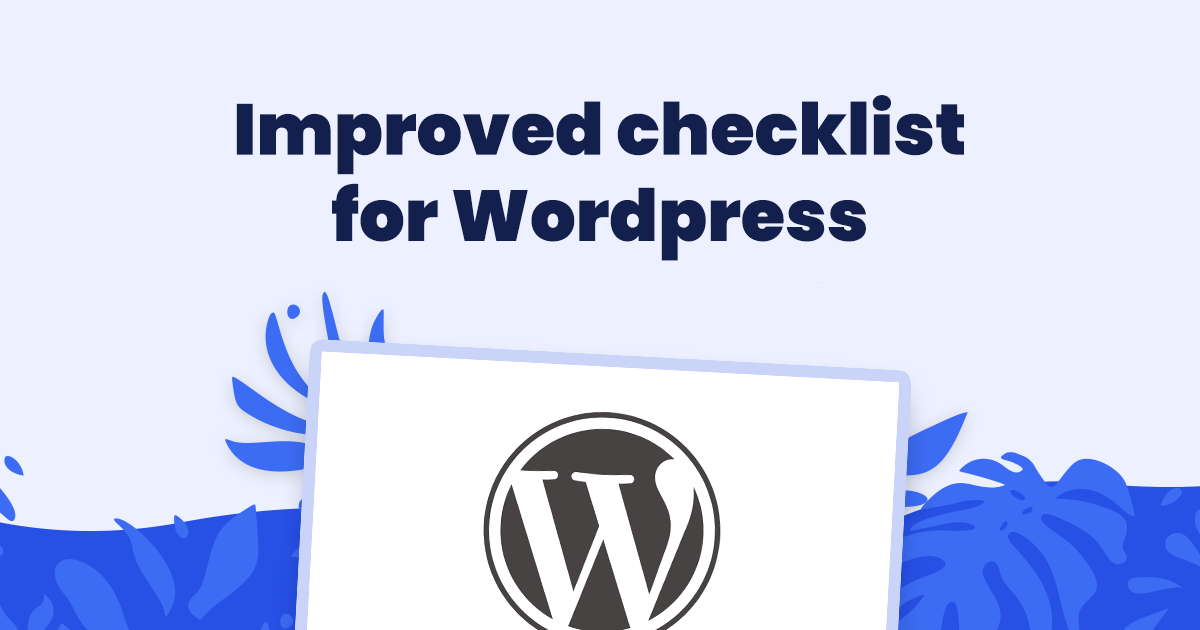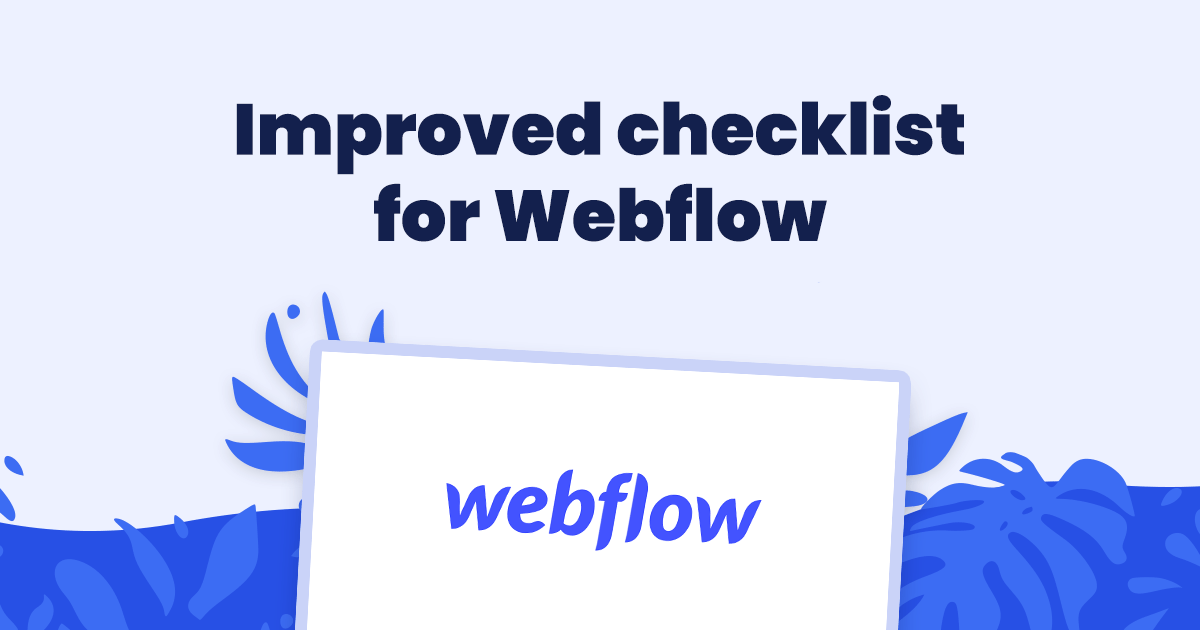Universal Analytics is going away.
Google's Universal Analytics has long been a staple for web developers and agencies.
Recently, however, Google announced that they will be deprecating Universal Analytics on July 1st 2023, in favour of the newer GA4.
In this article, we'll guide you through the implications of that change for you and your clients.
Then, we will help you evaluate your needs to see if you should migrate to GA4, or if an alternative analytics solution could be better.
What does that mean for you?
Let's dive into how this change will take place for you.
For every website where you were previously using Google's Universal Analytics, you'll need to:
- Remove the tracking code from your website.
- Set up your website in a new analytics service (GA4 or an alternative).
- Add the new tracking code to your website.
- Update your privacy policy.
Seeing as you are creating a whole new analytics project, you should be aware that:
- Historical data will not be available in your new GA4 project (more on that below!)
- You will need to re-create any custom reports you had previously set up.
- If you are using third-party integrations with Google Analytics, you may need to re-configure them as well.
As you can see, it's a lot of work for fairly little reward if you're switching from UA to GA4, especially if you are managing multiple websites.
Unfortunately, there's really no way around it: if you don't handle this now, you'll simply stop receiving any traffic and usage data from your sites once July 2023 arrives.
Seeing as you have to put in some time and effort already, we recommend you view this change as an opportunity to re-evaluate your needs in the analytics department.
Now is a good time to reconsider your analytics habits.
You will need to make a change regardless. Now may be a good time to ask yourself: "Do we really need Google Analytics?".
Your answer may come from a close look at your website's traffic. Chances are that Google Analytics is overkill for your purposes. Alternative solutions could give you the data you need without all of the baggage that comes with GA.
Even if we ignore its privacy issues, there are other reasons why Google Analytics might not be right for your website.
Think about your usage, your needs and your policies.
We recommend that you ask yourself the following questions:
- What data do you really care about?
- What data do you actually use?
- Does your privacy policy need to be updated (or created)?
- Do you have a data retention policy? If so, does it need to be updated? If not, should you create one?
Consider what information on your audience is useful and what isn't.
Beyond the privacy implications of tracking users, there's a practical concern: not everything that you're tracking is useful to you.
In fact, most of it probably isn't. Google Analytics tracks up to 200 different metrics, but in our experience, most GA users look at and use 10 metrics or less.
If you're not using GA's most advanced features and metrics, there's a good chance you would benefit from switching to an alternative service that tracks fewer metrics and that has a simpler user interface.
It's also important to remember that the more data you collect, the more likely you are to be infringing on your users' privacy (and the more complex your privacy policy will have to be).
Take a look at your goals and see if they're useful.
It’s also a good time to revisit your goals and make sure your goals are useful.
Do they help you make meaningful decisions? Are they relevant to your business, and actionable and measurable?
You should ask yourself if the goal is relevant to your company, who owns or controls the goal, does it encourage users to do something that is valuable to them, how will you measure success of the goal (metrics), who will be affected by this goal, how can the business take advantage of this new data?
Tracking visitors and creating goals based on their behaviour may be helpful, but it's also easy to fall into the trap of creating vanity goals that don't do anything other than look good on reports. If you're not using your goals to guide any decisions that benefit the users, we suggest you rethink whether you should be tracking them to begin with.
The best way to use analytics to improve your site is to have a plan.
The best way to use analytics to improve your site is to have a plan.
If you're not specifically trying to achieve something concrete with analytics (like, say, increasing newsletter signups), then all the data in the world isn't going to do anything for you.
Your goals should be SMART: specific, measurable, attainable, relevant and time-based.
We're not going to go into more details in this article, but you can find many resources on the subject if you're interested in creating or revisiting analytics plans and goals.
Explore alternative analytics platforms
Switching to a different analytics platform might seem like a big move.
However, seeing as you have to create a new GA property and change your tracking code anyway, now is the perfect time to re-evaluate the situation and see if other platforms could improve your users' experience as well as your on.
Here are a few reasons why we recommend you move away from Google Analytics.
Website loading speed
The tracking script required by Google Analytics is heavy. Even Google's own Lighthouse tool, like Google Pagespeed before it, often reports the GA script as being too heavy.
To give you an idea, Google's gtag script for GA4 weighs 183 kB (66.7 kB when compressed).
Comparatively, Plausible, a lightweight and privacy-friendly analytics platform, has a script size of just 1.3kB. That's over 140x smaller than GA4's script (50x smaller than GA4's compressed script).
A smaller script size means your pages load faster, and as you may already know, improving loading speeds also improves user experience and SEO.
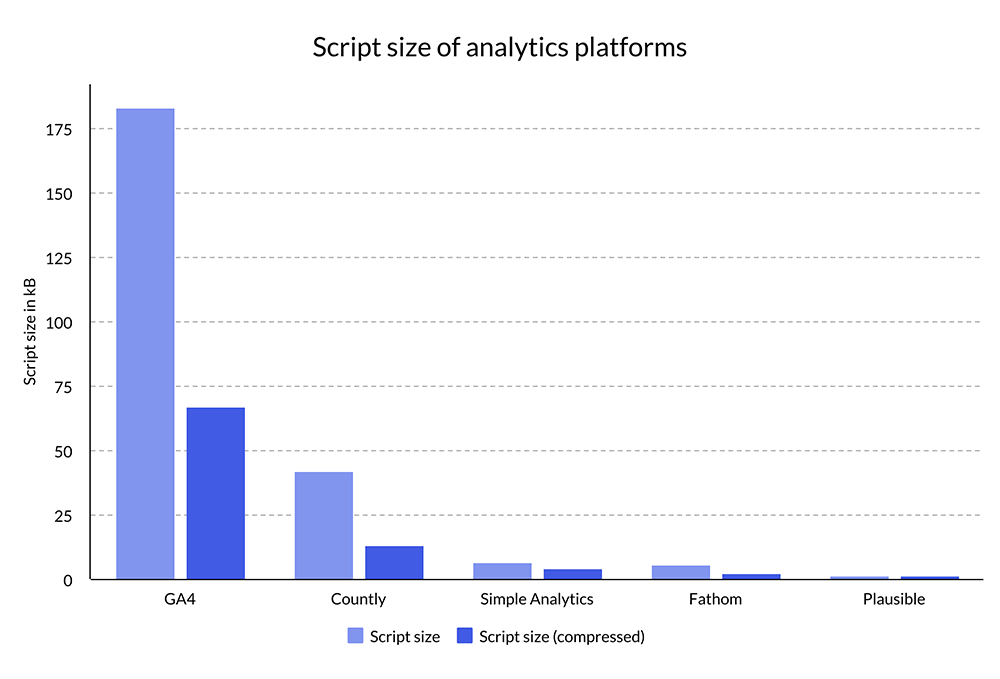
User privacy and regulatory compliance
If you care about respecting your users' privacy (and you should), moving away from Google Analytics is a no-brainer. Google isn't exactly known for respecting users privacy, and their Analytics platform follows in the same track.
Unless you really know what you're doing, your current usage of Google Analytics is likely non-compliant with the laws and regulations of different countries around the world. In fact, using Google Analytics is illegal in some countries, as ruled by Austrian and French authorities.
Legally tracking visitors to the extent at which GA does it requires you to have a well-crafted privacy policy, along with location-based exceptions and rules to control what you are tracking and where it is going. It's a hassle, and the laws around it are rapidly evolving, especially in the EU.
This is another great reason why you should move away from Google Analytics in favour of a privacy-friendly and GPDR-compliant solution. Our favourite alternatives are listed below - make sure to check them out.
Ease of use
Google Analytics is an incredibly powerful platform, but it's also incredibly complex and confusing.
For most people, what they need from an analytics platform is fairly simple:
- Basic metrics like page views, unique visitors, bounce rate, visit durations and such.
- Referrer and campaign information (aka: "where do these visits come from?").
- Goal, event and conversion tracking.
- Basic reports (top pages, metrics by page or source, etc.)
All of these features are present in Google Analytics, but they're easily lost in the hundreds of interfaces that GA offers. For users with the basic needs outlined above (which, I believe, is about 95%+ of people and companies), GA does a pretty poor job of highlighting the right information.
To be fair, the new GA4 does provide improvements on that front, but it's still fairly complex for non-experienced users.
On the other hand, alternative analytics solutions offer a smaller set of features, while still covering all of those needs and more. Their interfaces are stripped to the essentials and designed with care and attention, making them incredibly easy to use for new and experienced folks alike.
Pricing
The main difference between Google Analytics and most privacy-friendly alternatives is pricing: Google Analytics is free, while the alternatives use a paid subscription model.
As unappealing as paying for an analytics platform may seem, the reasoning behind it is simple. Google makes their money by harvesting, using and selling your visitors' data. Alternative platforms, on the other hand, keep your visitors's data private, so the only way for them to make money is to charge you for the costs of using their service.
Most of these services have fairly generous plans with low prices, so it is worth looking into.
If a monthly subscription is a deal-breaker for you, keep in mind that many of the alternative analytics solutions can also be self-hosted. This means that you set up the service on your own server. This requires a bit more work up front, and you should look into the regulations around hosting user data before you get started, but know that it's always an option if you want to avoid the subscription fee.
Recommended Google Analytics alternatives
Here are the two analytics solutions we recommend you check out.
Both platforms boast:
- Easy-to-use interfaces;
- Privacy-friendly and GPDR-compliant tracking;
- Lightweight scripts (< 5kB compressed);
- Good customer support.
Plausible Analytics
Website: https://plausible.io/
Pricing: starts at $9/month ($7.50 when paid annually)
Plausible is an open-source and privacy-friendly analytics platform based in Estonia (EU) that started in 2018.
In addition to being privacy-focused, Plausible gives back 5% of their revenue to environmental causes and open source projects.
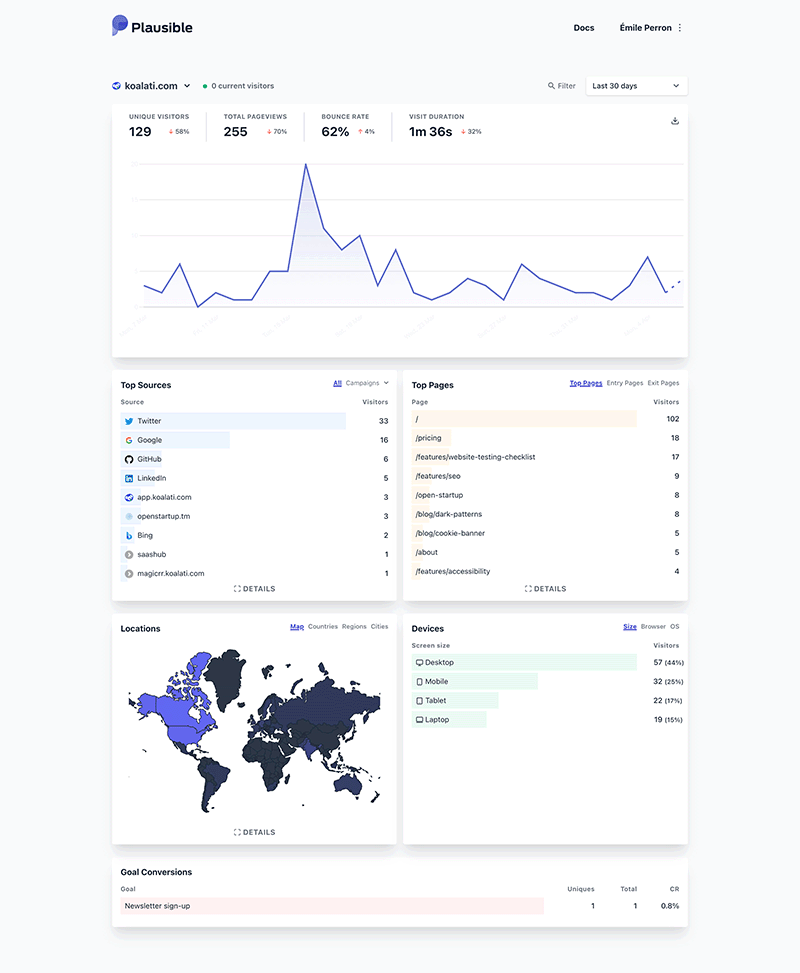
Importing your historical Google Analytics data into Plausible
Plausible are quick to develop and deploy new features and solutions.
Just a week after this article came out, they announced a new Google Analytics import feature for those of you migrating from GA3 (Universal Analytics) to Plausible.
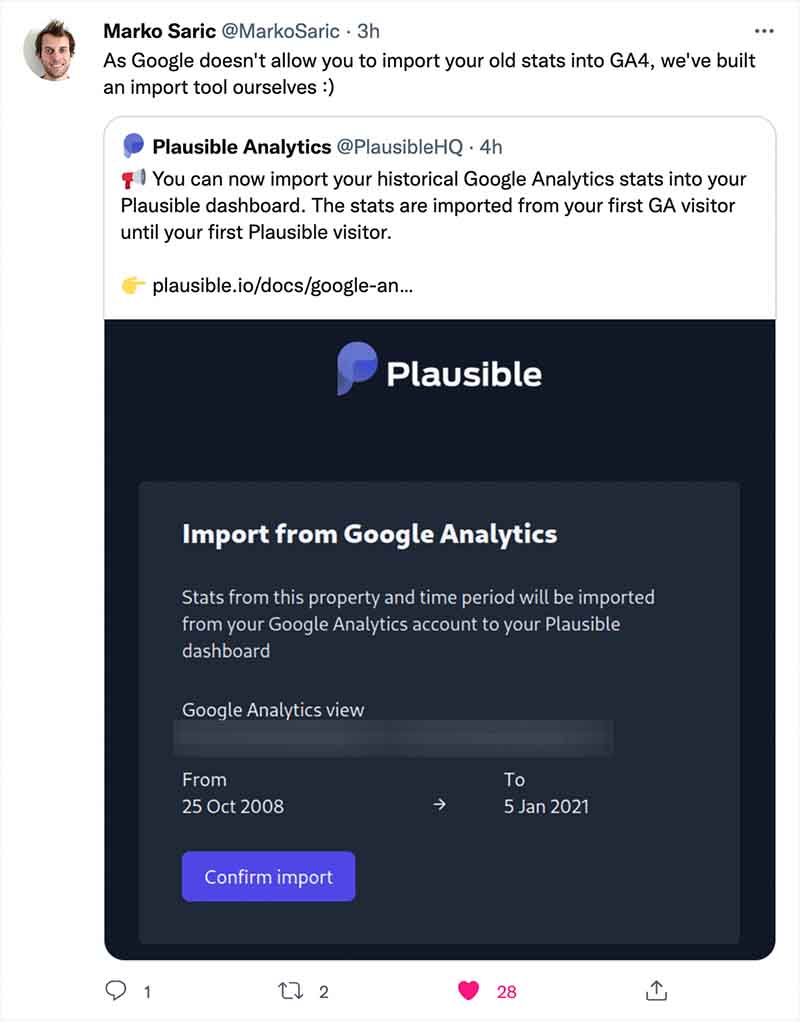
The feature is available right now; if you're migrating to Plausible, check out their "Import stats from Google Analytics" documentation.
Fathom Analytics
Website: https://usefathom.com/
Pricing: starts at $14/month ($11.67 when paid annually)
Fathom is a privacy-friendly analytics platform based in Canada.
In addition to being privacy-focused, Fathom gives back 2% of their revenue to fund carbon removal technologies.
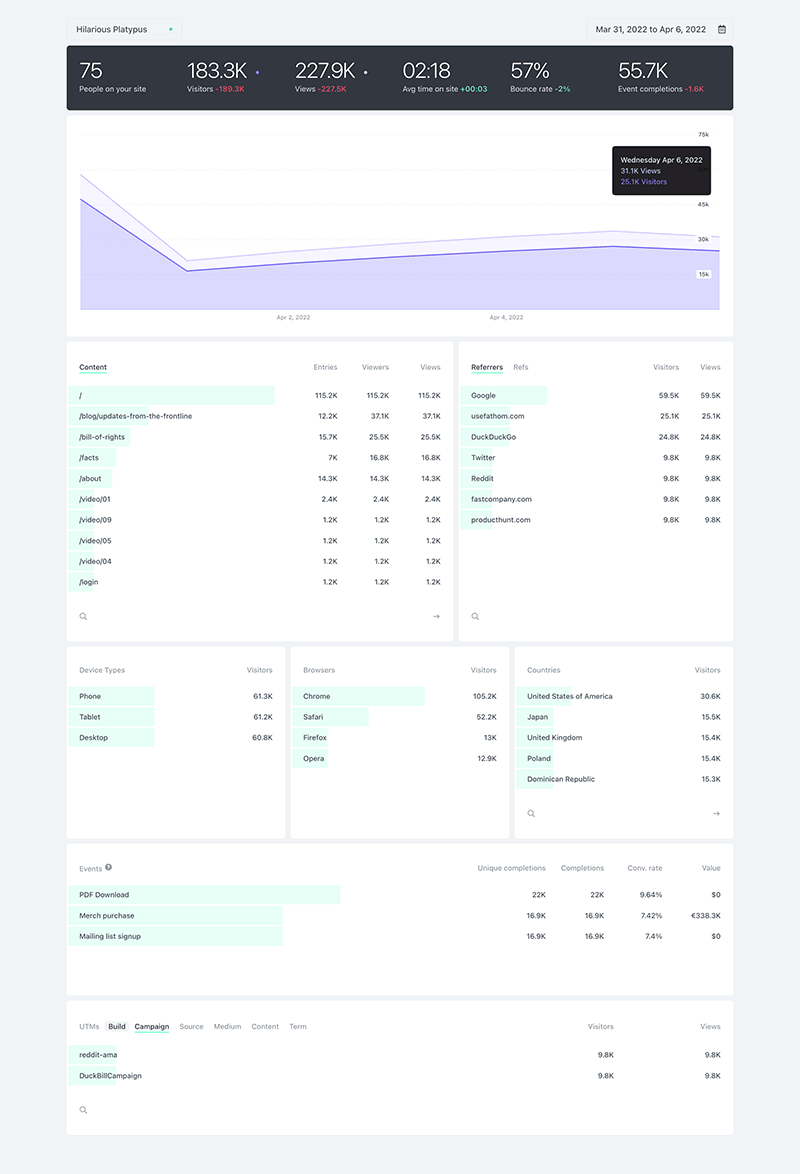
Summary
In short, Google is shutting down Universal Analytics in July 2023, in favour of the newer GA4.
Before that happens, you should either:
- Create a new GA4 property and update the tracking code on your website;
- Switch to a different (and better) analytics platform.
Google Analytics has been ruled as illegal in multiple European countries and is likely non-compliant in many other countries as well.
We recommend you switch to a lightweight and privacy-friendly alternative like Plausible or Fathom, as they offer:
- Lightweight scripts (faster page loads for your visitors)
- Privacy-friendly and GPDR-compliant
- Easy to use interfaces
- Good resources and customer support
Although Koalati receives a percentage of the purchases made by visitors who follow one of our affiliate links, this is not a sponsored post. The companies and products that are presented, linked to and/or endorsed in this article are there based on merit, on product research by Koalati, and by our experience. As an ethics driven company, we aim to inform and help our visitors and users to the best of our ability, without bias or external incentives.
